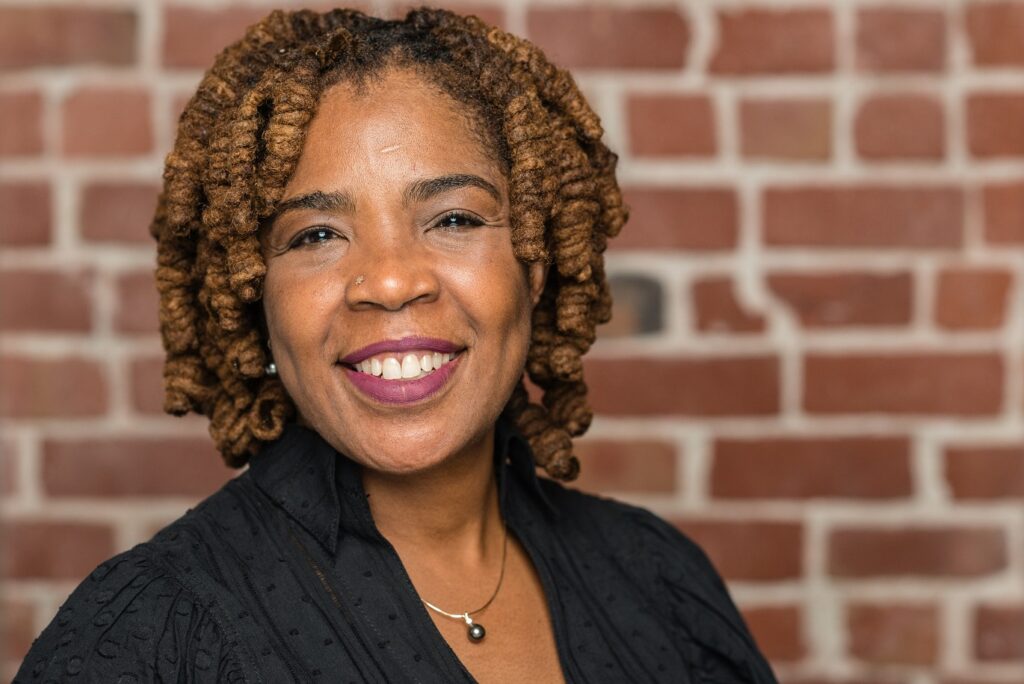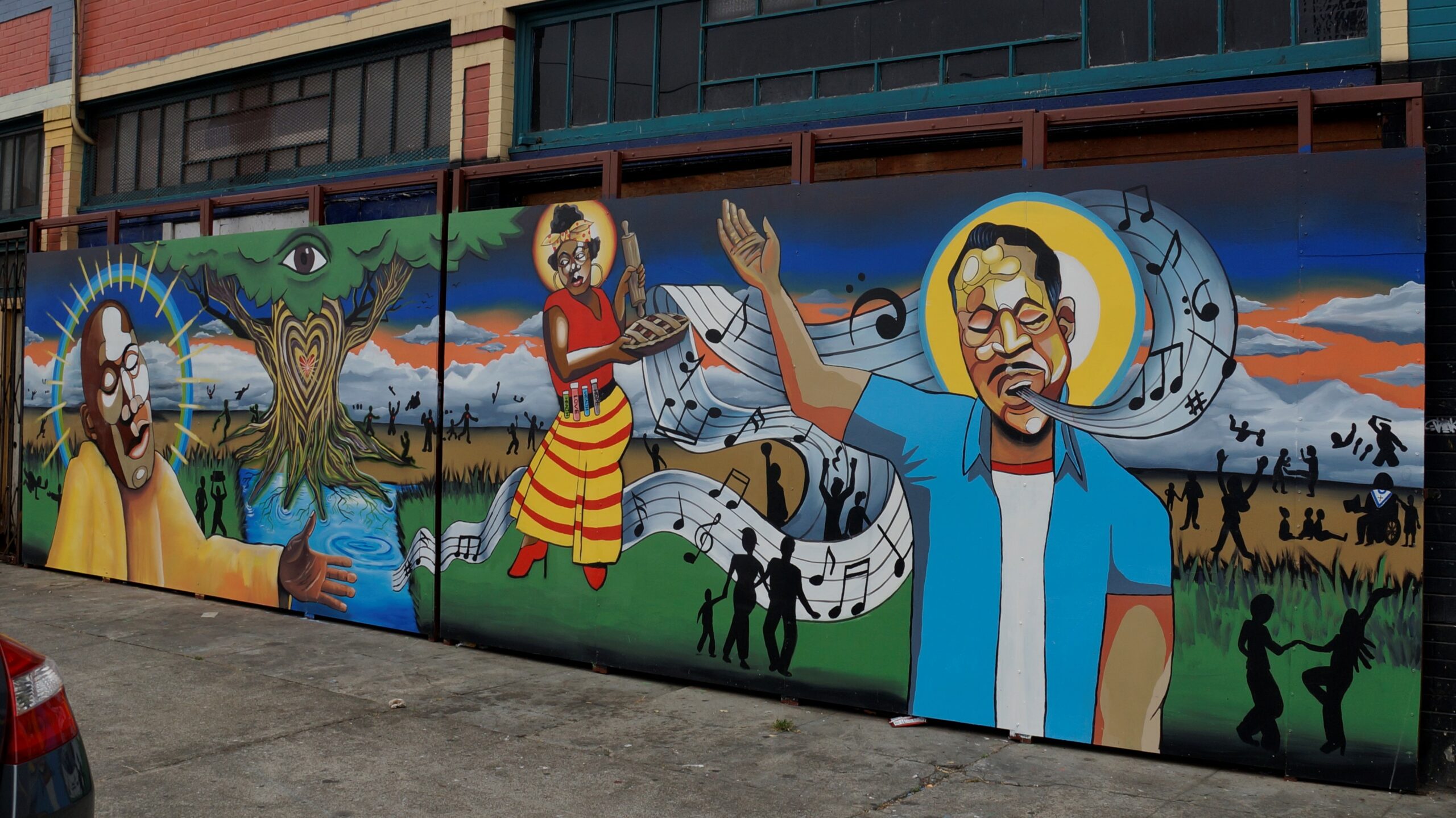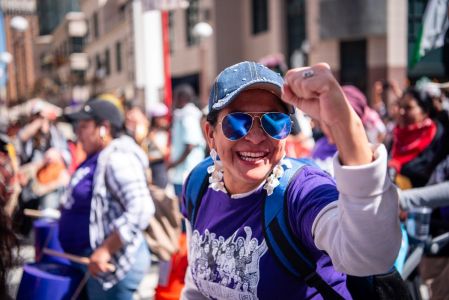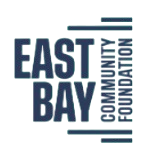
Celebrating 14 Years of Leadership at East Bay Community Foundation
At East Bay Community Foundation (EBCF), we believe that arts and culture are not just about creativity; they are vital to building racial justice and community power. For 14 years, Debrah Giles has embodied that belief, leading programs that uplift local artists and ensure cultural expression remains a living force in Oakland and beyond.
A Deep Oakland Legacy
Born and raised in Oakland, Debrah’s ties to community run generations deep. Her father founded the East Bay Dragons, the nation’s first Black motorcycle club, making her family well-known across the city. “Everyone knew who my dad and his daughters were — I couldn’t get away with anything,” she recalls.
That sense of visibility shaped Debrah early on. At 12, she joined a martial arts program for Black girls funded by the City of Oakland, where she learned discipline, perseverance, and community responsibility. “With martial arts, sometimes it’s soft, sometimes it’s hard. It’s like a dance if you do it right,” she says.
When the program’s funding was suddenly cut, Debrah started asking questions: “Where does funding come from? Who makes the decisions?” That search planted the first seeds for her journey into philanthropy.
Joining the Decision-Making Table
Debrah’s path into philanthropy wasn’t linear. Starting as a database administrator, she learned philanthropy’s behind-the-scenes operations while continuing her martial arts practice — first as a student, then as a teacher.
She aspired to move into grantmaking but faced familiar obstacles: racial bias and underrepresentation. “When I walked into the room, it was all white, and people assumed I wasn’t a program officer,” she says. “I would dress to the nines — like putting on armor — so they couldn’t shake my confidence.”
Eventually, Debrah found her professional home at EBCF, drawn by its multiracial staff and commitment to racial justice. Over her 14 years, her leadership has been central to shaping EBCF’s arts and culture strategy.
Building Power Through Arts and Culture
Today, Debrah leads four major EBCF programs that invest in artists and cultural organizations:
- The Macpherson Fund, providing grants to small performing arts organizations.
- The East Bay Fund for Artists, which has partnered with over 9,500 donors and 200 nonprofits to commission new work by more than 300 local artists.
- Belonging in Oakland: A Just City Cultural Fund, a public-private partnership with the City of Oakland and Akonadi Foundation, focused on fostering a just city and sense of belonging.
- Arts and Culture for Racial Justice Fund, supporting arts organizations focused on racial justice and aligned with EBCF’s belief in the power of culture to build strong, vibrant communities.
Her work includes securing and managing city and philanthropic funds, convening community juries to award grants, and pulling together donors to pool funding for artists and organizations. Debrah also serves on Oakland’s Public Art Advisory Committee and is a member of Bay Area Cultural Funders for Equity, amplifying the voices and artistic power of communities of color and those living near the poverty line.
A Lasting Impact for Artists and Community
One of Debrah’s key contributions has been transforming grantmaking practices to better support artists. Under her leadership, grant sizes increased from $8,000 to $25,000, and burdensome matching requirements were removed.
“We could have an even bigger impact with more funding. We have the formula that works, but we just need more funds,” she says.
For Debrah, investing in arts and culture is about more than creativity. It’s about building belonging, joy, and resilience in communities across the East Bay.
“When you see a mural that’s unique to the community, it tells the story of what’s come before and what people want for the future,” she reflects. “Art doesn’t erase who you are. It amplifies it. It makes a community vibrant.
“In philanthropy, the arts are the fun part. It’s pure joy. That’s why I love this work.”
–
This profile was written by Beth Trimarco, in conversation with Debrah Giles.


